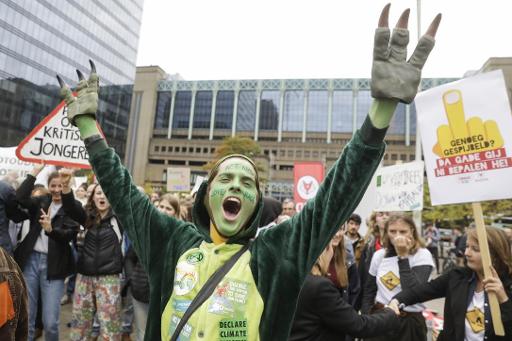Flanders could be billed up to €433 million because it will not achieve its 2020 climate objectives, according to a newly published report.
The Socio-Economic Council of Flanders (SERV) has amassed the potential cost of various CO2-related fines and compensations, reaching a total of €433 million, according to a report from this consultative body of trade unions and employers, relayed by De Tijd on Tuesday.
The Flemish government on Monday introduced its climate plan with measures for 2030 on the table, but it is already clear the climate objectives for 2020 will not be attained, leaving Flanders eligible for fines.
Flanders can still avoid being fined by purchasing emission rights for the following year from countries that still have a surplus CO2 budget. Based on current estimates, the north of the country should be able to acquire emission rights from abroad for €42 million.
Related News
- Flemish government lowers its target for CO2 reduction by 2030
- Wallonia wants to become carbon-free by 2050
- Six recommendations to help Belgium meet its climate goals
The Flemish Minister for Environment, Zuhal Demir, announced on Monday that the initial target to reduce CO2 emissions had been adjusted. As the Region would not achieve a 35% reduction of greenhouse gas emission by 2030, the goal has been set at 32.6%.
To avoid sanctions, the government will be able to purchase extra capacity from Wallonia, which is producing more renewable energy than foreseen. The Walloon Region has even set its sights on carbon neutrality by 2050, through a 95% reduction of its greenhouse gases, along with carbon-trapping measures.
Despite this, Flanders will also have to buy rights abroad to compensate for its lack of green energy, something which SERV estimates could cost up to €318 million.
If energy-saving goals are not achieved, the European Commission will also be able to initiate an infringement case, entailing a probable fine of €73 million.
The Brussels Times

